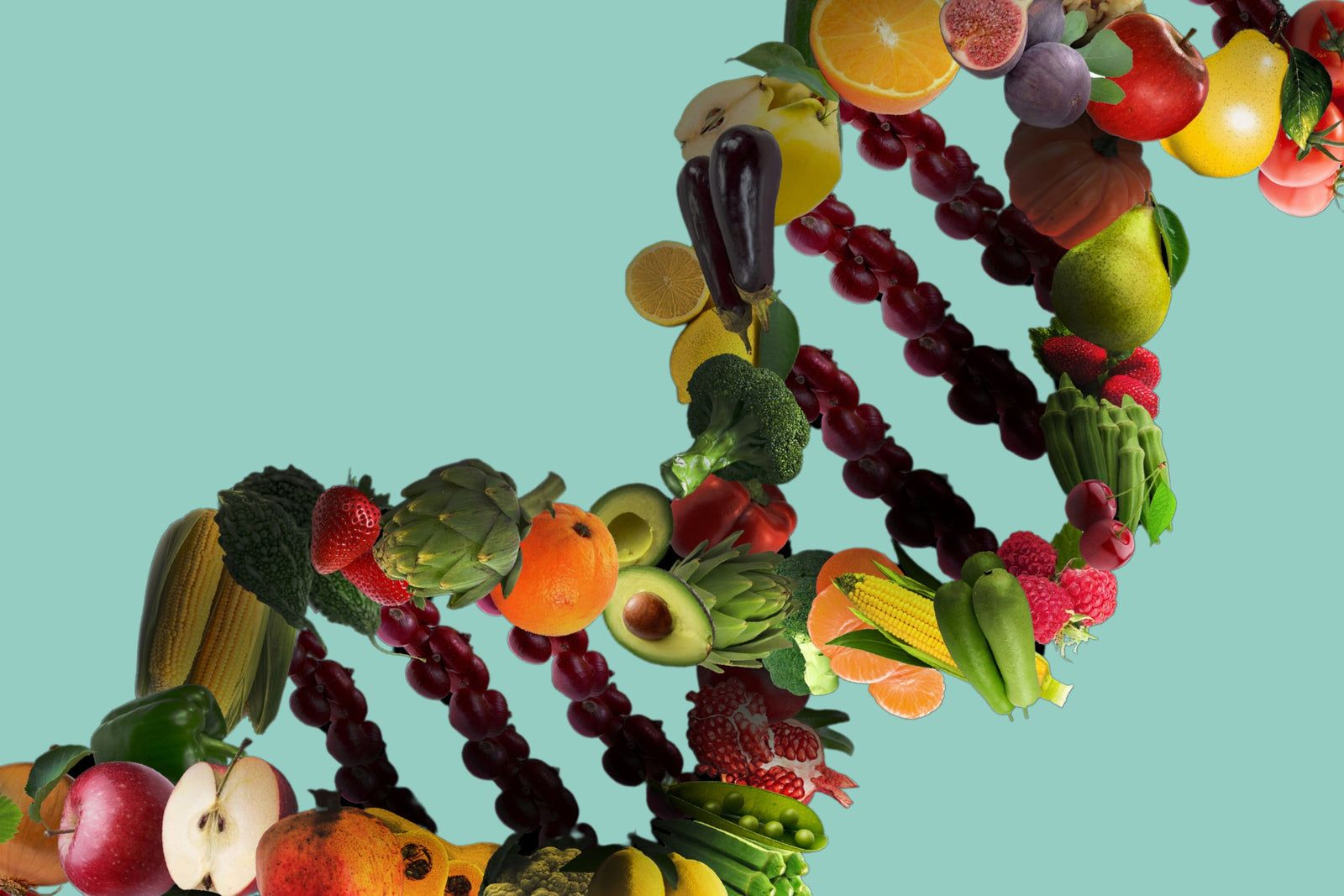How BCO1 and Vitamin A Work
Vitamin A is essential for vision, immune function, skin health, and healthy cell growth. It is available as preformed Vitamin A (retinol) from animal foods and as beta-carotene from plant foods. The body converts beta-carotene into active Vitamin A using an enzyme made by the BCO1 gene. Genetic differences in BCO1 can change how efficiently beta-carotene is converted, affecting how much usable Vitamin A you get from plant sources.
What this means for your health
- If conversion is reduced, you may rely more on animal sources of preformed Vitamin A to meet needs.
- Beta-carotene-rich foods still offer important antioxidants and other nutrients, even if conversion is slower.
- Because Vitamin A is fat-soluble, eating plant sources with healthy fats and using cooking methods that increase absorption can help.
Genetic Interpretations
Two effect alleles (TT for rs7501331)
If you have the TT genotype for rs7501331, which means you carry two copies of the effect allele. This genetic variation in your BCO1 gene means your body may be less efficient at converting beta-carotene from plant foods into active Vitamin A (retinol). While you can still convert beta-carotene, the process may be slower compared to others. To support adequate Vitamin A levels, consider including preformed Vitamin A sources like eggs, dairy, and liver alongside colorful vegetables. Since beta-carotene is fat-soluble, pair plant foods with healthy fats like olive oil or avocados to enhance absorption. Continue eating beta-carotene-rich foods for their additional health benefits beyond Vitamin A.
One effect allele (CT for rs7501331)
If you have the CT genotype for rs7501331, which means you carry one copy of the effect allele. This genetic variant in your BCO1 gene is associated with likely decreased beta-carotene conversion to the active form of Vitamin A. Your body may be less efficient at transforming beta-carotene from colorful plant foods like carrots and sweet potatoes into usable Vitamin A (retinol). This doesn't mean you can't convert beta-carotene at all, but the process may be slower compared to those without this variant. To support adequate Vitamin A levels, consider including preformed Vitamin A sources such as eggs, dairy, and liver alongside your beta-carotene-rich vegetables. Pairing plant foods with healthy fats can enhance absorption, as beta-carotene is fat-soluble.
No effect alleles (CC for rs7501331)
If you have the CC genotype for rs7501331, which means you carry two copies of the non-effect allele. This genotype is associated with typical beta-carotene conversion efficiency. Your BCO1 gene produces the enzyme that converts plant-based beta-carotene into active Vitamin A at a normal rate. This means your body can effectively transform the beta-carotene from colorful fruits and vegetables like carrots, sweet potatoes, and spinach into the active Vitamin A it needs. Continue eating a balanced diet that includes both beta-carotene-rich plant foods and preformed Vitamin A from animal sources like eggs, dairy, and fish to support your vision, immune function, and overall health.
Practical Dietary Recommendations
Use these simple strategies to support healthy Vitamin A status regardless of genotype.
- Include preformed Vitamin A sources regularly: liver (small portions), eggs, full-fat dairy, and fatty fish. These provide retinol directly and bypass conversion requirements.
- Eat a variety of colorful fruits and vegetables: carrots, sweet potatoes, butternut squash, spinach, kale, and red peppers are rich in beta-carotene and other beneficial carotenoids.
- Combine plant sources with healthy fats: add olive oil, avocado, nuts, seeds, or full-fat dairy to meals to improve beta-carotene absorption.
- Cook some beta-carotene-containing vegetables: light cooking or pureeing can release carotenoids and increase bioavailability compared with raw forms.
- Balance portion sizes of liver and high-retinol foods: preformed Vitamin A accumulates in the body, so avoid excessive intake, especially during pregnancy.
Supplement and Nutrient Considerations
- Multivitamin or targeted Vitamin A supplements can help if dietary intake is low, but speak with your healthcare provider before starting any supplement.
- For those with reduced conversion, consider supplements containing preformed Vitamin A or a mixed carotenoid formula that includes some retinol, under medical guidance.
- Be cautious with high-dose Vitamin A supplements, particularly during pregnancy. Too much preformed Vitamin A can be harmful.
- Supportive nutrients: adequate dietary fat, protein, and zinc are important for Vitamin A transport and function. Consider evaluating overall nutrient status if concerns arise.
Lifestyle and Cooking Tips
- Cook vegetables briefly rather than overcooking to maximize nutrient retention and carotenoid availability.
- Add a fat source to salads and cooked veggies—olive oil, nut-based dressings, or avocado work well.
- Include both raw and cooked preparations across the week to capture different nutrient profiles.
- Maintain a balanced overall diet that supports digestive health, since healthy digestion and bile flow aid fat-soluble vitamin absorption.
Recommended Blood Tests and Monitoring
- Serum retinol: measures circulating Vitamin A status, helpful if you have symptoms or dietary risk factors.
- Complete nutrition panel: to assess related nutrients like zinc and markers of liver function before changing supplement routines.
- Discuss testing cadence with your healthcare provider if you plan on taking preformed Vitamin A supplements, especially in higher doses.
When to Talk to a Healthcare Provider
Consult your healthcare provider if you have symptoms of Vitamin A deficiency (night vision issues, dry eyes, or dry skin) or if you are pregnant, breastfeeding, have liver disease, or take medications that interact with Vitamin A. Your provider can help interpret genetic results in context, recommend blood testing, and advise safe supplementation or dietary changes.
Final Notes and Disclaimer
PlexusDx provides educational information about genetic predispositions only. This content is not medical advice. Always consult your healthcare provider before making changes to your diet, supplements, or medical care based on genetic information.

Share:
Cholesterol | APOE (rs7412)
Selenium | SEPP1 (rs7579)